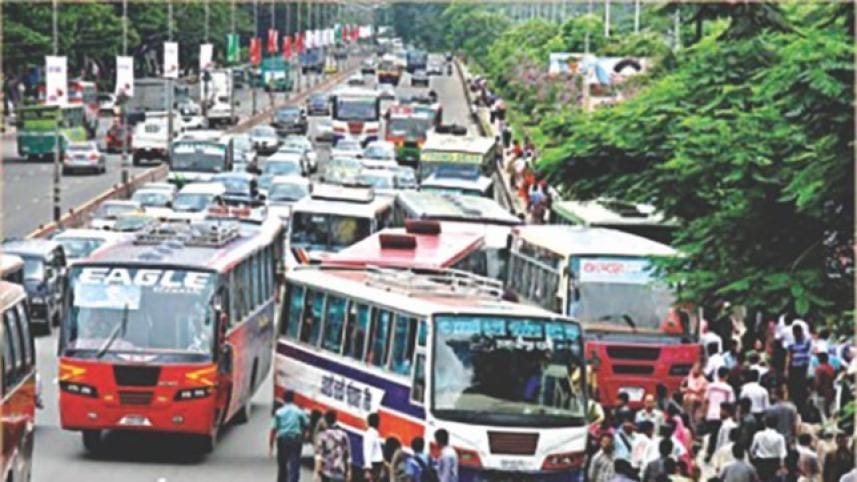Implementation of the transport act

The authorities have put into effect the Road Transport Act-2018 on November 17 and already a number of problems have crept up. It seems that not all the ground realities that militate against its efficient and strict implementation have been taken into account.
Looking beyond the opposition from transport associations which have demanded repeal of some sections, there are more fundamental problems that need to be resolved before the police and mobile courts can start implementing the Act properly. The BRTA has issued 23 lakh driving licenses against some 42 lakh registered vehicles on the road. The new law states that license-less drivers will face six months in jail or fined Tk 50,000 (or both). There are some 10-12 lakh unregistered battery and engine-run three-wheelers operating nationwide.
Currently, BRTA issues around 6 lakh annual fitness clearance certificates a year. Unless both manpower and infrastructure are upgraded, it will take a few years simply to regularise paperwork for existing vehicles. Then there is the issue of some 4 lakh vehicles that have registration, but no fitness certificates. In a city that has hundreds of thousands of vehicles plying its streets, the Act does not allow for loading and unloading of goods, or even picking up and dropping off of passengers without falling foul of the provisions in the Act. Dhaka, moreover, does not have enough parking spaces. None of these factors were taken into consideration before implementing the law.
We are perplexed as to why there was no extensive long-term awareness campaign to make people aware of what the new law entails. We applaud the authorities for the law, but it will not be effective, and will be open to misuse, without the appropriate support mechanisms.
 For all latest news, follow The Daily Star's Google News channel.
For all latest news, follow The Daily Star's Google News channel.
Comments